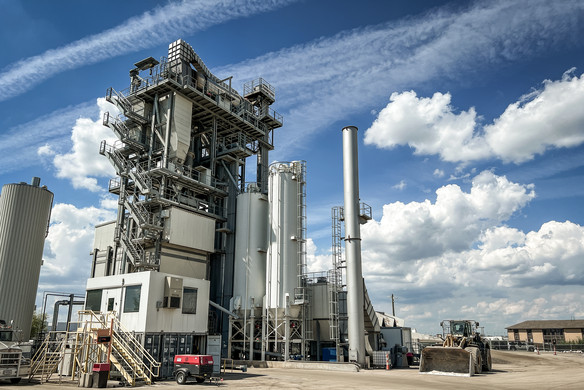Table of contents
RAP Management manufactures sustainable pavement materials, serving a customer base primarily comprised of paving companies. RAP Management accepts business on credit, through checks, and their point of sale — part of which they manage with Square products. “The point-of-sale portion is what ended up leading us over to Square. Our first processor that we had, on the back end there were problems. The fees were fine but the actual point of sale was very manual so we were logging into a computer, a webpage terminal manual, and entering the name, the billing address, the credit card number on a computer keyboard and it slowed the process down,” said RAP Management Sales Manager Anthony Burke, adding that for their business there are typically two individuals in the control center, one making the material, the other loading the trucks and communicating with the drivers. If one of those individuals stopped what they were doing in order to process a payment, it would mean a line of 40 or 50 trucks that needed to be loaded would come to a standstill. Expediting that process was crucial for them in growing the business. “In previous years there was at least one time where something went wrong, the wrong person got billed, there was a typo in the sales amount when it was run, the transaction was under the wrong type, and so on and so forth,” said Burke. He says the simplicity and expedition of the process helps avoid errors today.
Capitalizing on existing assets
RAP Management doesn’t offer installation or trucking services, they focus on materials manufacturing. This is something that helps them streamline their operations and avoid competing with their own customers. “Being able to run with a much leaner operation, where we focus on being the best at the one thing we do instead of being spread all over the place, we can focus on delivering the best possible product and customers appreciate that as well,” said Burke. He says the key to the company’s success has been validation and repetition. Keeping the business consistent from start to finish, from the production line to the plant in their case, has given them the flexibility to partner with their customers.
A focus on sustainability also sets them apart from other material manufacturers. “Everybody in the industry is recycling, just not quite at the same level that we are. The nationwide average is in the ballpark of 20% recycled content. We’re on a daily basis targeting 60%,” said Burke. “The facility we’re running is a more expensive facility, but when you offset all the costs of being able to utilize the reclaimed material instead of buying virgin material, a lot of that balances out. It allows us to be competitive with some of the big guys without having the massive infrastructure to do that.”



The business often runs performance testing, making sure the quality of its asphalt is not only sustainable, but meets its quality standards as well. While prioritizing sustainability is a success for the company today, Burke says it was a risk when they first tried it, as much of the construction industry is reluctant to take risks like these. “They didn’t see it as this great new thing. They say it as, ‘well, that’s not the way it’s always been done, so we don’t want to do it,’” said Burke. “In the beginning, most of the time it caused us more of a setback than a net gain. Now that time has passed and we’ve proved ourselves with years of repetition, a lot of people are coming back around to it.” Local governments have started building boards advocating for sustainability and this, in turn, has become a driver for the business.
Paving the way for a second location
RAP Management operates the production portion of its business seasonally. Due to the colder, rainier weather in the winter, they aim to stay open from mid-March to mid-December with maintenance work in the off season. Burke says they are always looking for areas where they can improve, and working throughout the seasons gives them time to strategize and make incremental adjustments so that when production season rolls around there are fewer unexpected obstacles. “When it comes to production season, everything’s coming along and we’re in good running shape. Breakdowns can be catastrophic for yourself and your customers because trucking is very expensive, so if you’re waiting in line and have a maintenance issue, they’re paying for the trucks to sit there, the crew to sit there, and nothing is getting done which is a lose-lose for everybody,” says Burke.
As for what’s next, Burke says they will be focusing on automating processes that take up more manual time ‚— things like managing inventory. Ironing out those details will pave the path for the business to open a second plant next year and use this business as its example. “If we can build it and show that it not only does work, we can also take over and acquire market share to scale … at that point we’ll have a really good blueprint to duplicate in other markets,” said Burke.
![]()











